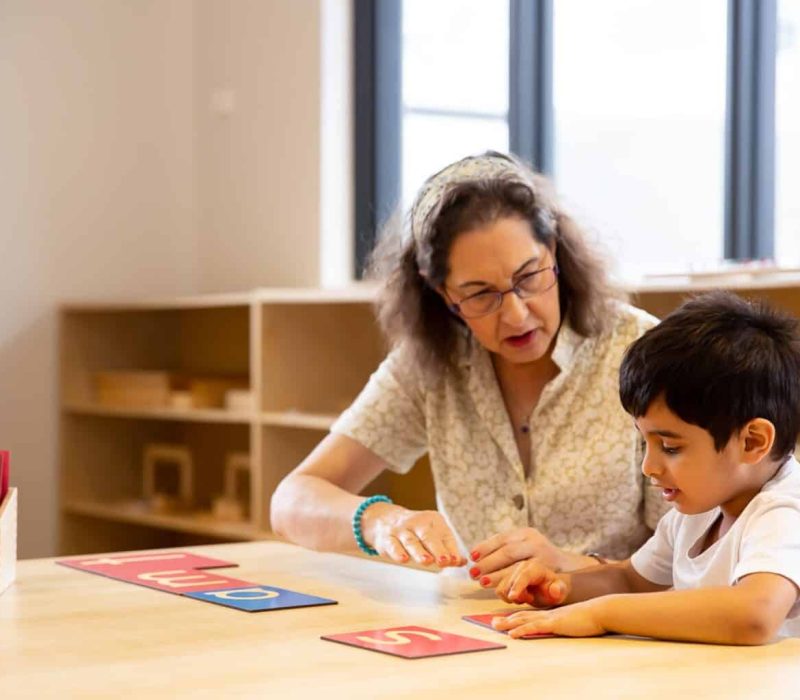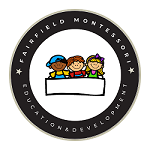Preschool Montessori Program
Designed to ready children for the next step in their educational journey, the Preschool Montessori Program offers a well-organized blend of academic instruction and holistic development. Building upon the fundamental skills cultivated in earlier programs, it aims to cultivate confidence, independence, problem-solving abilities, creativity, and practical life skills.
Engaging Preschool Learning Community
Within the Montessori Preschool Program, children experience a vibrant and interactive learning environment that empowers them to make choices, pursue their interests, and advance at their individual pace. This setting fosters the development of independence, enhances concentration, and sparks a passion for learning, contributing to the refinement of intelligence and higher-level cognitive processes.
Between the ages of three and six, preschoolers undergo sensitive periods for various aspects such as language, order, grace and courtesy, the senses, writing, small objects, music, reading, spatial relationships, and mathematics.
Throughout this developmental phase, the Preschool Curriculum introduces children to an array of advanced Montessori materials, building upon their foundation in Practical Life, Sensorial, Mathematics, Language, and Culture.
The preschool classroom’s layout and the educational materials therein are meticulously designed to align with these interests, offering enriching learning opportunities that foster the comprehensive development of children while equipping them for both school and life.
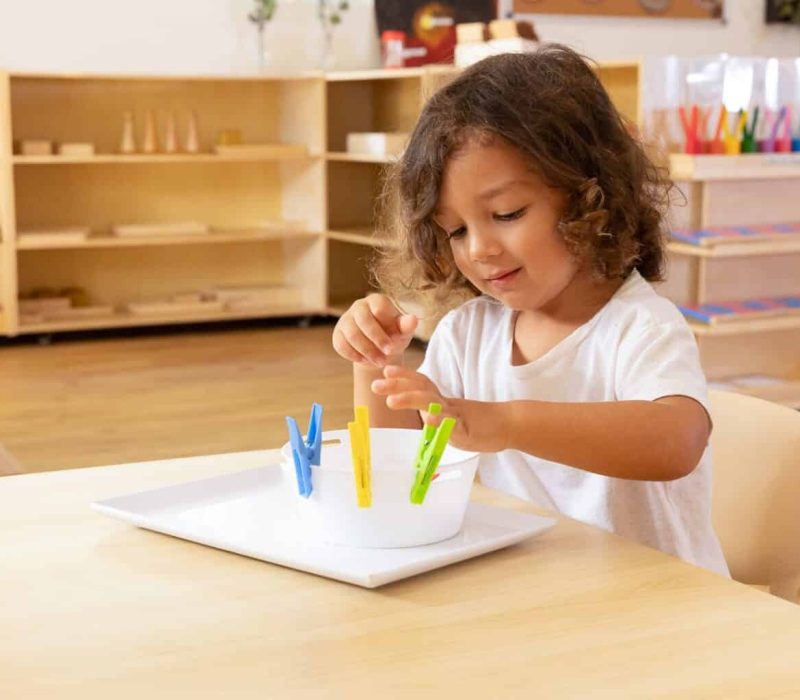
Preschool Learning Goals
- Formation of individual letters and numbers
- Recognises numerals and counts by rote
- Reads simple sentences and constructs phonetic words
- Can write and recognise their own name
- Aware of the decimal system, addition, and subtraction
- Participates in physical activities and follows the rules of games
- Shows self-confidence and interacts well with others
- Ability to concentrate and work independently
- Responds to challenges and demonstrates problem-solving skills
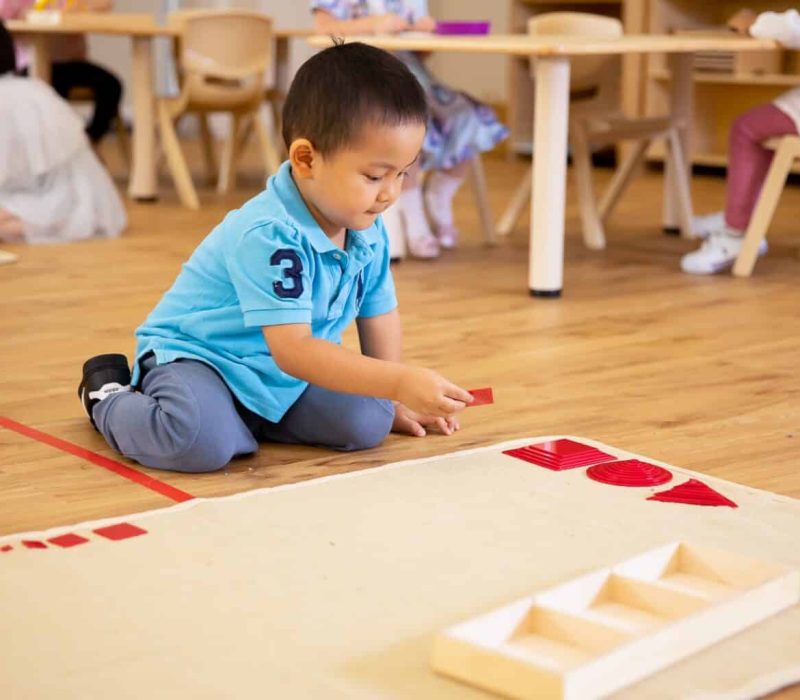
Preschool Curriculum
Practical Life
Practical life activities focus on care of self, care of others, and care of the environment. In addition to teaching daily life skills, practical life activities promote independence, social skills, grace and courtesy, concentration, and coordination.
Example materials and activities include:
- Tonging
- Grating
- Threading
- Lessons in Grace and Courtesy
- Nuts and bolts
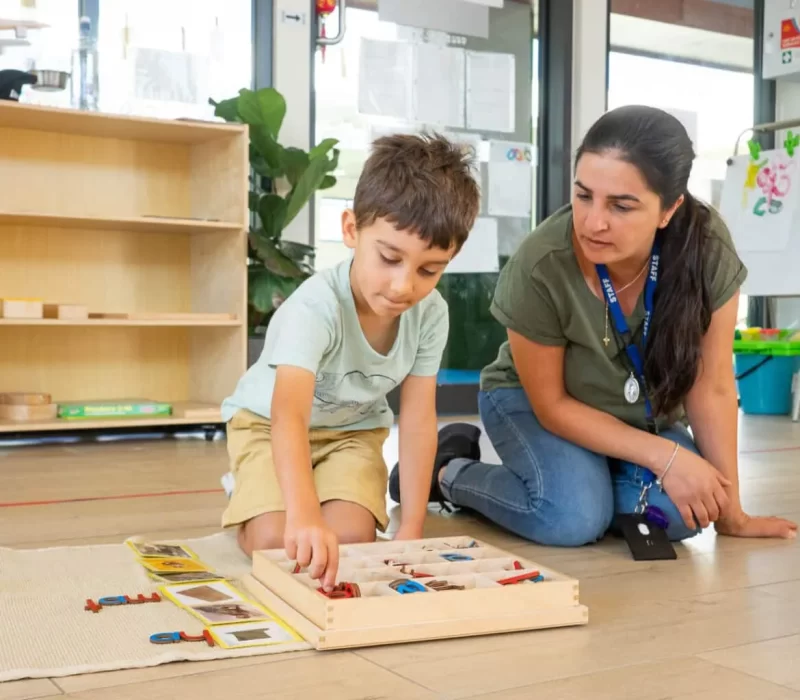
Sensorial
Sensorial activities are designed to help children develop and refine the senses of sight, touch, taste, smell and sound. These skills assist with classifying, sorting and discriminating between objects to interpret their sensory impressions. These skills are necessary foundations for language and mathematics.
Example materials and activities include:
- Red rods
- Superimposed shapes
- Geometric solids
- Sound cylinders
- Trinomial cube
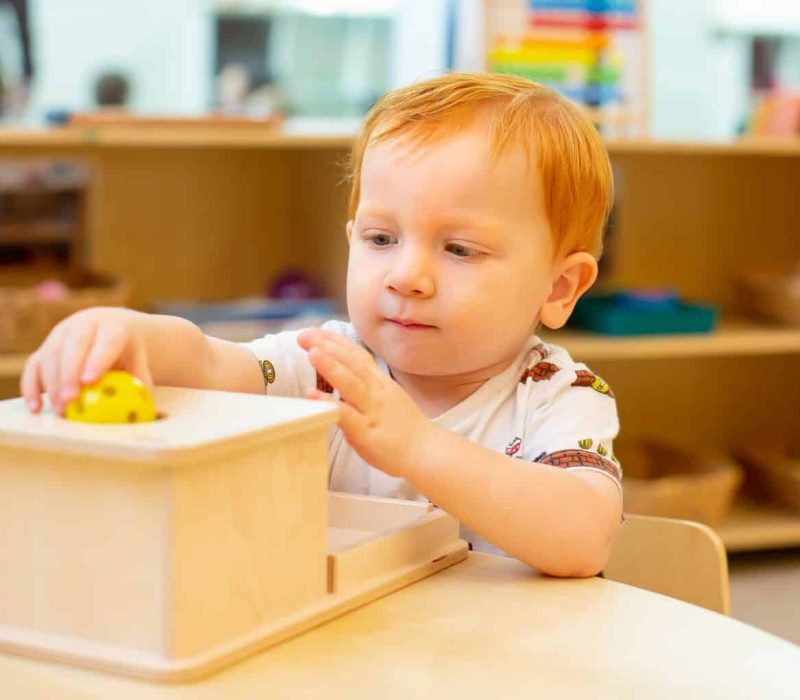
Mathematics
Montessori mathematics materials assist children in developing an understanding of abstract mathematical concepts through hands-on experiences. Through the mathematics materials, students learn to identify and quantify numerals, count and sequence numbers, add and subtract, identify patterns, and learn about number systems.
Example materials and activities include:
- Number rods
- Spindle boxes
- Hanging bead stair
- Addition strip board
- Hundred board
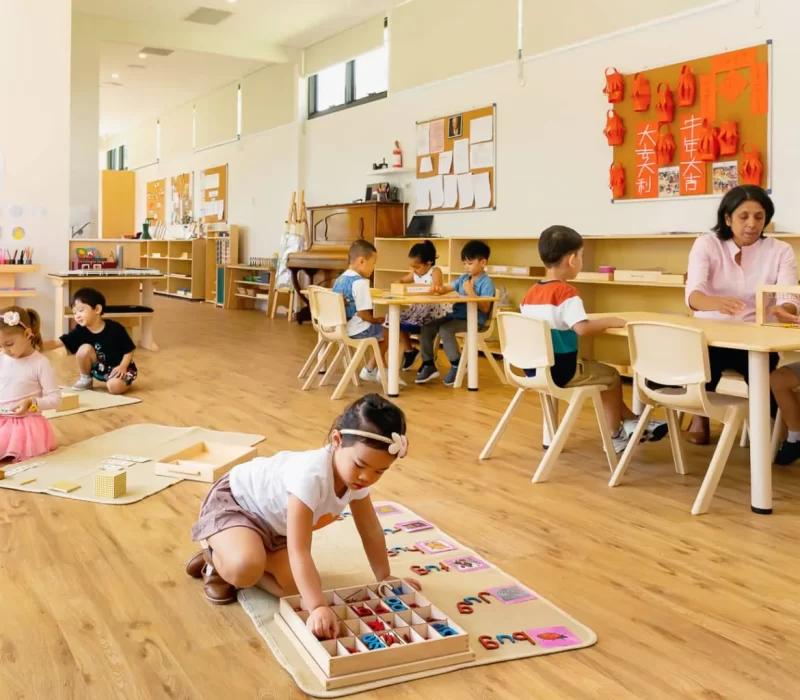
Language
Montessori language materials assist children in learning literacy skills and developing their vocabulary. Through conversation, singing, and hands-on materials, children learn letter recognition, phonics, vowels and consonants, and the early stages of writing and reading.
Example materials and activities include:
- Moveable alphabet
- Metal insets
- Object picture matching cards
- Three part cards
- Object boxes
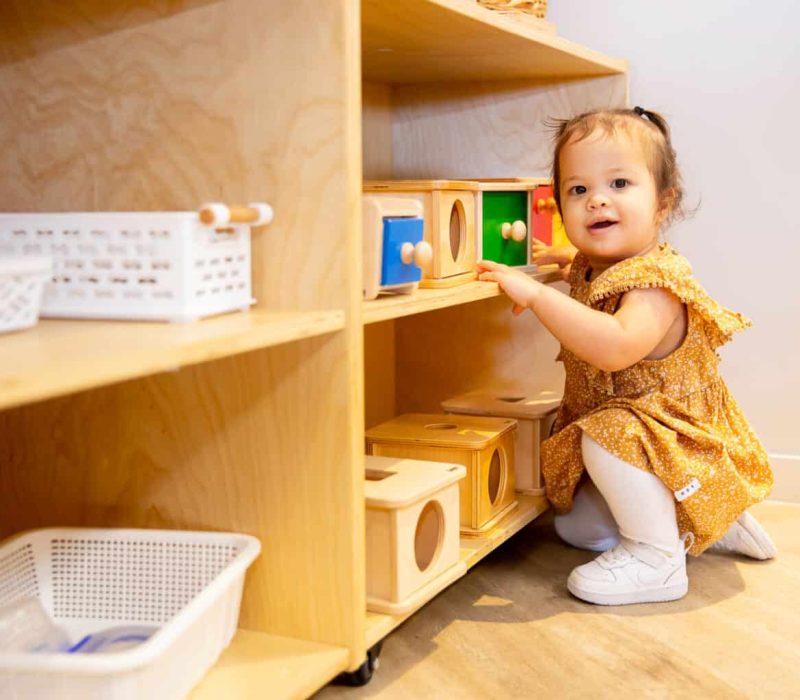
Culture
The Montessori Culture Curriculum covers the study of the arts, geography, science, environment, national culture, music, and history. Through cultural activities, children learn about their community and the world. They discover similarities, differences, and develop an understanding, appreciation and respect for diversity and all living things.
Example materials and activities include:
- Land and water forms
- Continent boxes
- Botany cabinet and puzzles
- Life cycle puzzle and activities
- Map cabinet
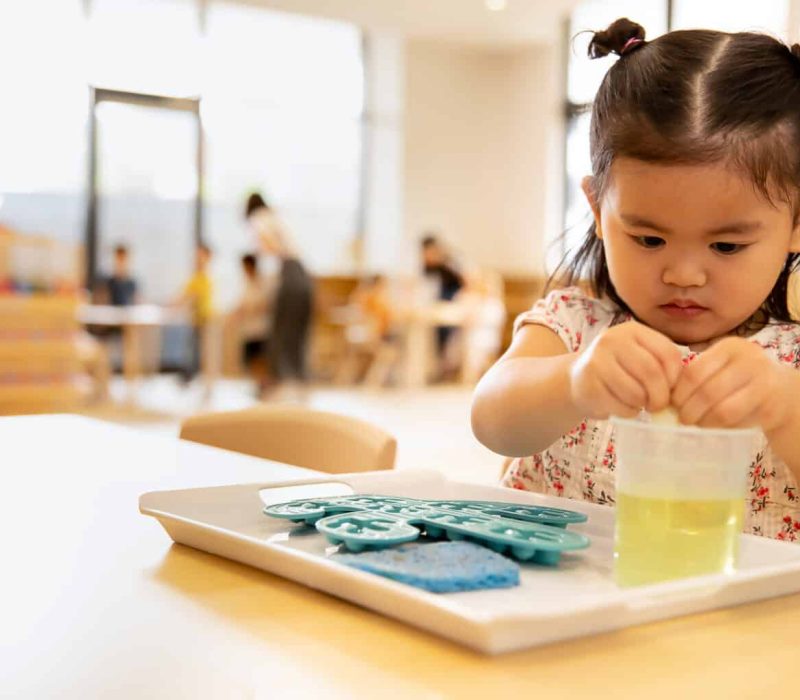
Early Years Learning Framework
In addition the Montessori Curriculum, all Montessori Academy childcare centres also teach the Australian Government’s Early Years Learning Framework (EYLF): Belonging, Being & Becoming. The EYLF incorporates five learning outcomes that work hand-in-hand with the Montessori Curriculum to support children’s learning from birth to age five.
Five Key Outcomes of the EYLF:
Outcome 1: Children have a strong sense of identity
Outcome 2: Children are connected with and contribute to their world
Outcome 3: Children have a strong sense of well-being
Outcome 4: Children are confident and involved learners
Outcome 5: Children are effective communicators
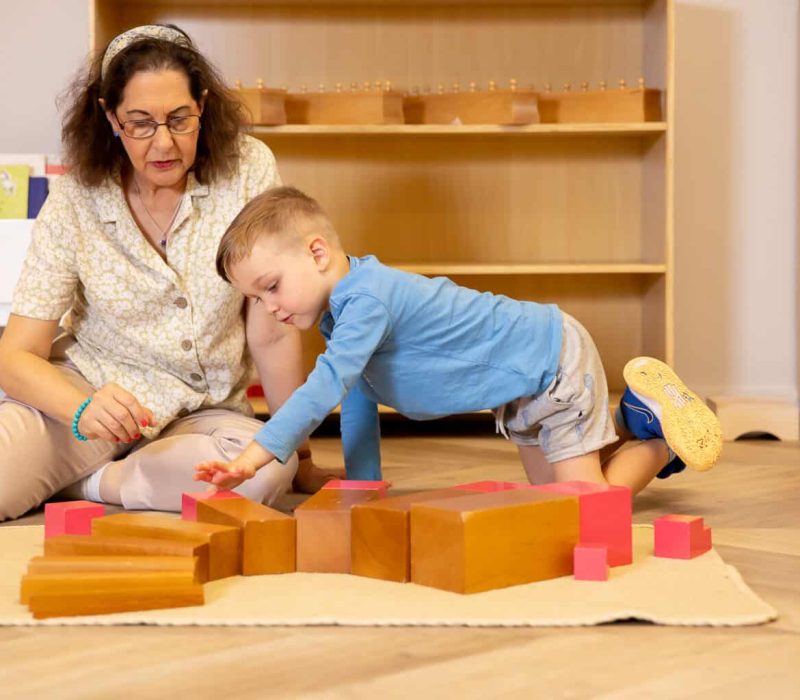
Preschoolers’ Daily Schedule
The daily schedule for preschoolers delineates the customary daily rhythm for children ranging from three to six years old within the Montessori preschool environment. This routine establishes a regular sequence of events, encompassing learning sessions, meals, rest periods, and outdoor play. The structured nature of the routine instills a sense of security in children, exerting a positive impact on their emotional, cognitive, and social development.
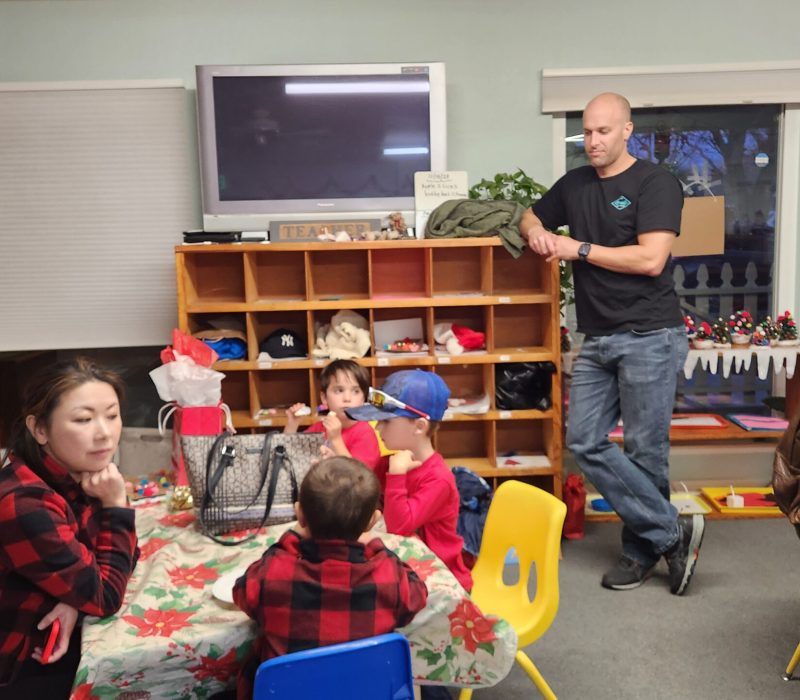
What’s the next step? Introducing the School Readiness Preparatory Program
Montessori Academy’s School Readiness Preparatory Program equips children with the essential knowledge, skills, and behaviors required for a smooth transition to any primary school environment. Emphasizing social and emotional intelligence, independence, literacy, numeracy, problem-solving abilities, and fostering a continued passion for learning, the program is designed for children in their concluding year of preschool.
